There’s no doubt that having experience in construction is an essential factor for a worker in that field.
However, while hard skills and technical knowledge are what makes a qualified construction worker, soft skills are what makes a good construction worker.
It’s their soft skills that will help your company keep up with the increasingly rapid changes and growing demands in the industry, so it’s a good idea to help them learn some essential ones.
We’ve drawn a list of 7 soft skills that you can train your construction workers on.
In this article...
Time Management
Time management is vital in any industry, but especially so in construction.
So many elements on a construction site are sequential and co-dependent that one delay causes a chain reaction.
Unfortunately, poor time management is so widespread that construction professionals spend 35% of their time on non-optimal activities, according to PlanGrid.
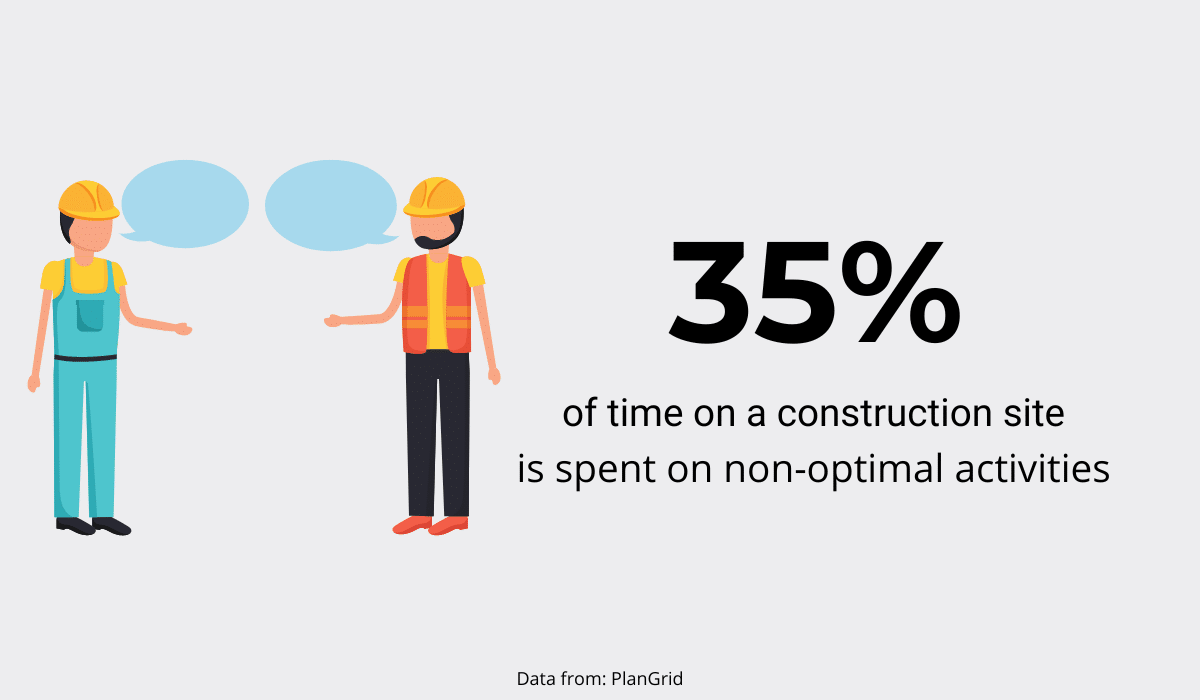
This can be prevented by making sure you hire employees who understand time management.
A punctual worker who knows the schedule and the interrelationship between tasks is your biggest asset.
That person can be trusted to do what’s needed even without your supervision and prioritize when needed.
If, as a manager, you want to help workers tap into their time management skills, you should first set clear expectations.
Leaving things to guesswork is not only irresponsible but also dangerous on a construction site.
Make sure everyone knows what’s expected of them and when and if there are any doubts, encourage them to contact you and double-check.
After that, different methods can be used to help workers organize better, such as:
- Prioritizing tasks and tackling the most demanding ones first
- Discouraging multitasking and focusing on a single task at a time
- Taking breaks
If you see that they’re trying, recognize their efforts and commend them for it, it’ll do wonders for their self-esteem and make them work even harder.
You’ll end up with happier employees who manage their time efficiently, helping you meet deadlines and deliver projects on time.
Problem Solving
Being able to solve problems in a practical way by using creative thinking is another indispensable soft skill for construction workers.
It doesn’t have to mean constantly coming up with elaborate schemes to get things done. On the contrary, economist Herb Simon defined creative problem-solving as a search for simplicity:
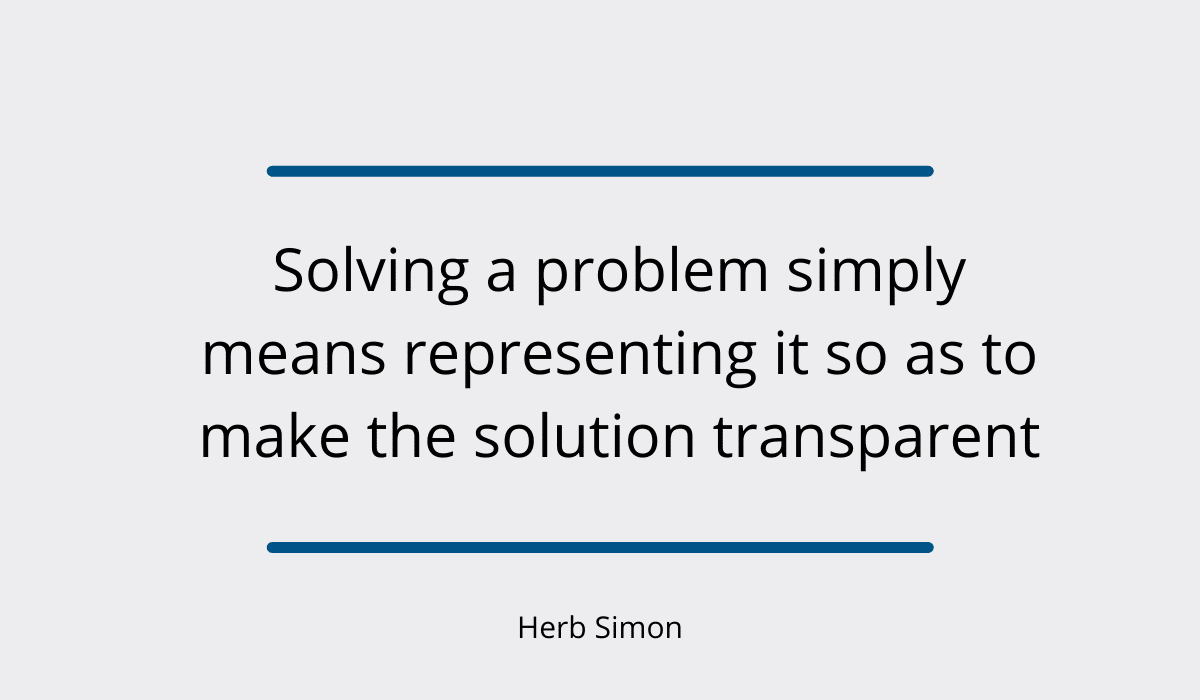
To solve a problem successfully, you must spend enough time considering it from different angles and preparing to tackle it.
That being said, a team of people who discuss issues, brainstorm, and listen to each other when solving problems will function better as a group and find the optimal solution.
This is excellent news for you because it translates into a better quality of service for your company.
Everybody does it daily to a certain extent without even realizing it, but there are also steps you can take to help your workers become master problem solvers.
To illustrate the power of problem solving, let’s look at Turner Construction Company from New York.
Their new member applied a problem-solving method called A3 Thinking and identified 1,255 scratches and dents on the part of a curtain wall.
He then categorized them and worked together with a subcontractor to address the underlying issues.
Together, they managed to find an optimal solution and helped reduce scratches and dents by 82% in the next stage.
He not only improved the company’s workflow but saved time and money.
When solving problems, workers can follow these basic steps:
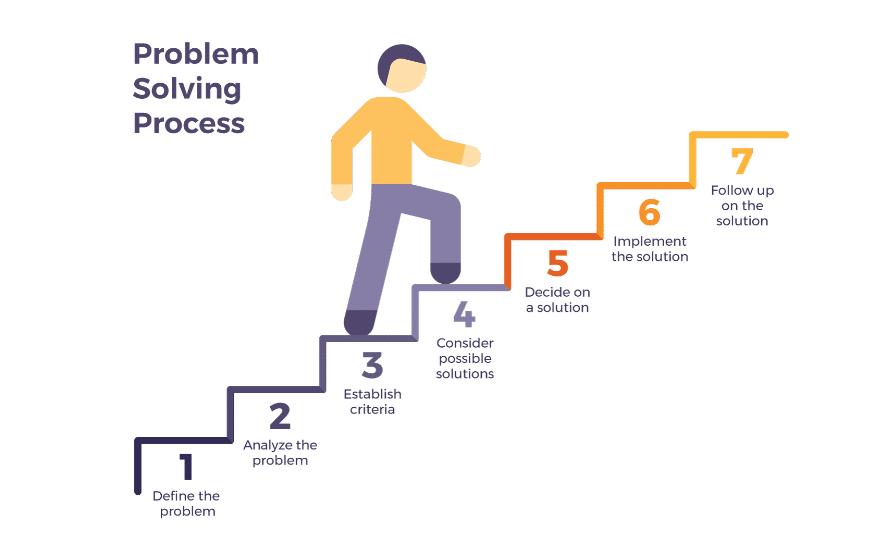
In short, they need to identify the problem, analyze its different aspects, establish the criteria required to find a solution, brainstorm possible solutions, and decide on the best one.
Finally, the best solution needs to be implemented to see if it can be further improved or if this approach can be used for solving other problems.
This structured approach will help your workers focus and find better solutions for various problems, leading to projects of a higher quality and, therefore, more satisfied clients.
Situational Awareness
Situational awareness can be defined as being conscious of your surroundings and how they might affect you and the people around you.
Such awareness is crucial in identifying potential hazards, of which there are plenty on each construction site.
Situational awareness decreases when working under pressure, as people often do on a construction site.
In fact, 1 in 5 worker deaths in the USA occurs in the construction industry, according to OSHA.
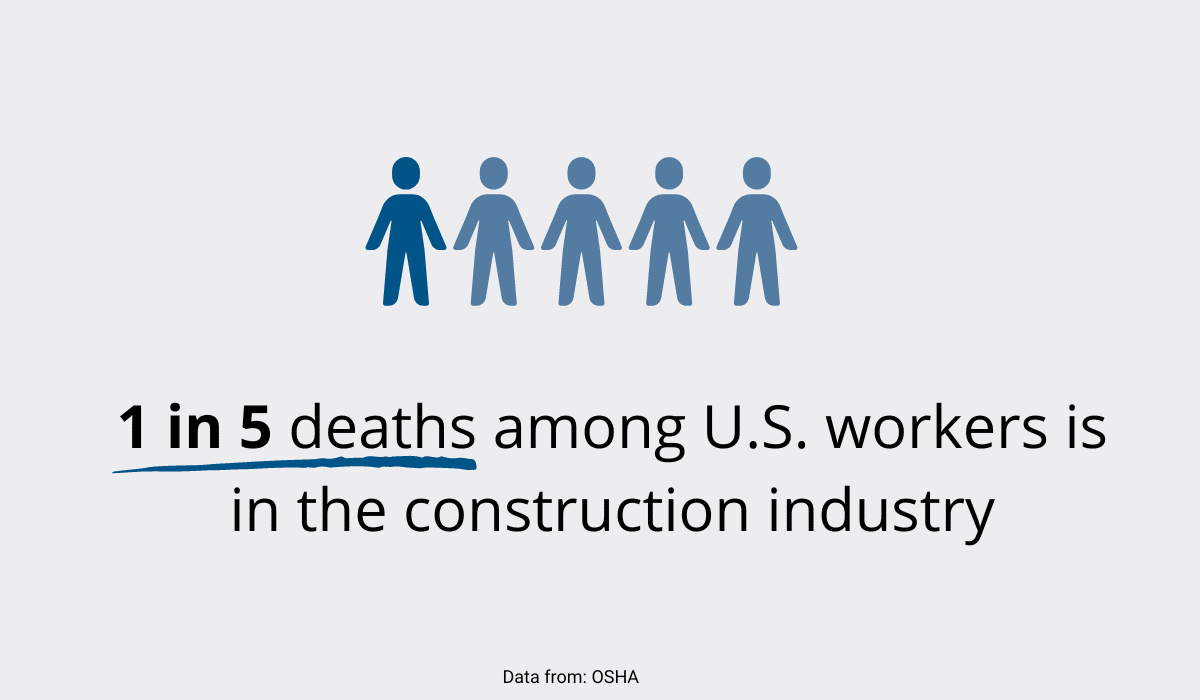
To minimize the chances of accidents, it’s essential to discuss the importance of situational awareness with your employees.
For instance, you might warn them of some of the most common hazards (equipment falling, getting a limb caught by a machine).
You can also encourage them to alert their coworkers if they identify a danger that the coworker may not have.
This will increase the chances of spotting the potential risk before it happens and help keep everyone safe.
One tactic that can be taught to workers is the SLAM technique. It improves workers’ situational awareness in four simple steps:
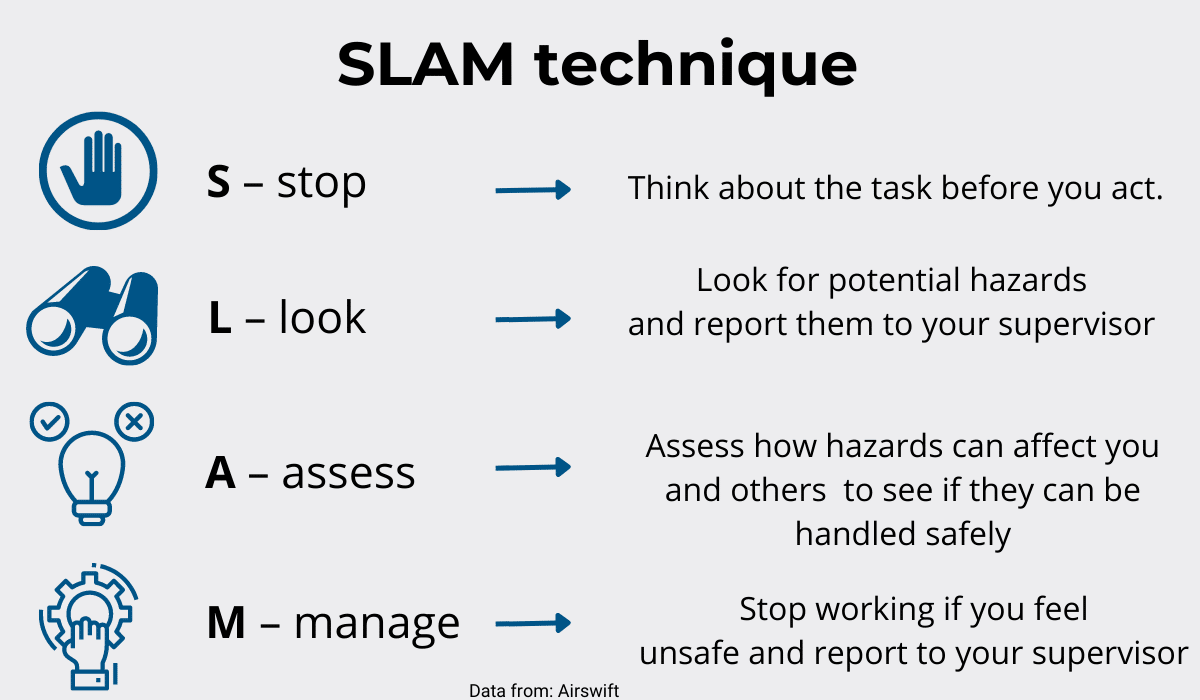
Situational awareness and risk management boil down to noticing things around them to identify potential hazards and assessing how they can be handled safely.
In addition to raising awareness about prevention, situational awareness can be improved in practice by informing workers about the status of ongoing projects and future steps to be taken.
For example, if the foreman notifies the crew when a crane will be used to move the load on the site, they will adjust their plans accordingly, e.g., by staying out of the area where the crane operates to avoid any falling items.
By staying up-to-date and having a picture of the situation and the schedule, everyone will stay safe, and there will be no surprises.
Influencing Skills
Charisma and the ability to influence people allow workers to get noticed and increase their chances of promotion.
Those qualities signal to their supervisors that they are qualified, so they trust them to do the job.
As John Hancock said, influencing the actions of others is the greatest ability in business.
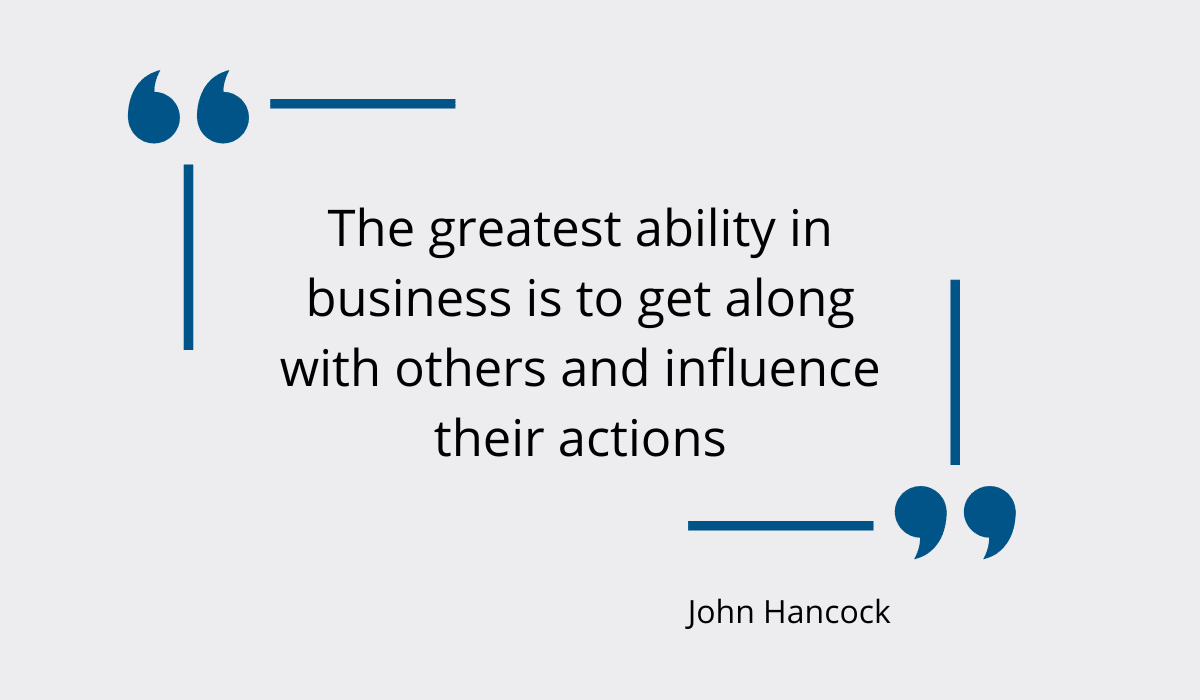
Influencing is also important when a client wants to change the design, for instance.
A person with good influencing skills will not try to convince the client why they are wrong or point out the flaws in their suggestion.
Instead, they’ll use their knowledge in an assertive but not aggressive way to make the client see the benefits of your company’s idea and help them realize that they should stick to it.
You might think that someone either does or doesn’t have influence, but like any other skill, influencing can be learned.
A key component is the willingness to compromise.
If a person demonstrates compassion and openness to the views of others instead of stubbornly insisting on their own, the other side will appreciate and respect them.
Their opinion will be valued more in the future because others will understand that they don’t care only about themselves but want others and the company to succeed.
Influence is also closely related to body language. If someone doesn’t look at you while talking, you’ll think they’re not interested and feel you’re wasting their time.
The same goes for crossed arms or being too serious. People will feel intimidated by you, which is not a good thing if you’re trying to invite their trust.
Being friendly, smiling politely, and looking at people with eyebrows slightly raised will show interest in their words and get them on your side.
Commercial Awareness
Commercial awareness is an often-overlooked soft skill.
Having commercial awareness means knowing how a certain company is organized, how it fits into the industry that it’s a part of, and how any potential changes in the industry will affect the company’s profitability.
At the industry level, a person with this skill might know how geopolitical events will impact raw materials prices or their effect on delivery times.
At the organizational level, they might know what duties a specific position within a company involves, how it relates to others and what role it plays in the company’s profitability.
Without commercial awareness, it’s difficult for workers to move forward in their careers because they aren’t on top of things and don’t keep up with trends.
For example, sustainability is an essential topic in all major industries at the moment, construction in particular.
So, an example of commercial awareness would be knowing that the construction industry generated more than 600 million tons of waste in the USA in 2018.
If you want to encourage your workers to build their commercial awareness, you can recommend useful magazines and websites for them to read or sign them up for workshops on trends in the construction industry.
Don’t make it a chore. Instead, spark their interest by presenting fascinating data at meetings or distributing engaging content.
That way, they’ll become intrigued and anxious to know more, and you’ll get workers who are passionate about what they do and want to learn.
Adaptability
The past few years have shown how quickly things can change in the global market, so to be able to survive in the industry, workers need to be able to adapt.
This means navigating new roles successfully, knowing how to handle new circumstances, and being able to deal with failure.
Adaptability is so vital that McKinsey & Co. found that people who demonstrate that quality is 24% more likely to gain employment.
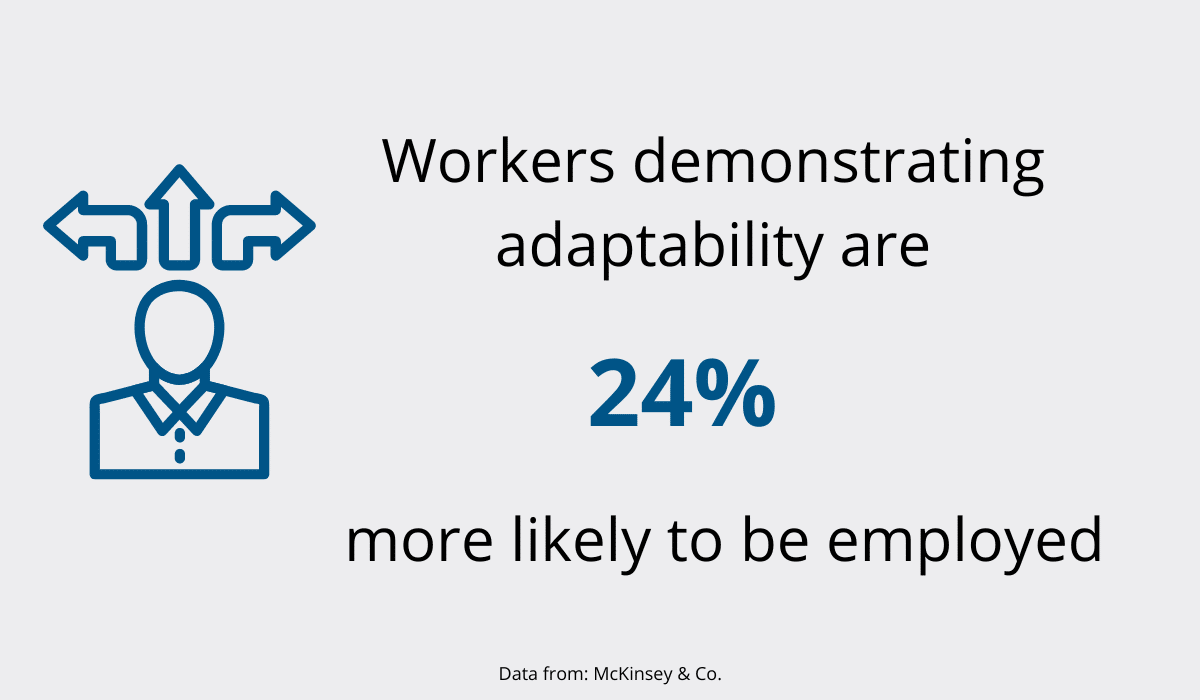
One way to teach your workers how to become more adaptable is by encouraging resilience.
This can be achieved by setting challenging yet achievable goals and then providing constructive feedback.
Challenging goals will force them to step out of their comfort zone, and even if they fail, they will have learned something.
Moreover, if you provide feedback in a kind and compassionate way, they will see that mistakes are integral to working life.
Instead of beating themselves about it, they will see it as an opportunity to learn.
Another suggestion is to encourage workers to share their ideas more.
Everyone has something to bring to the table, and really listening to other people’s ideas without judgment or criticism will allow people to consider different perspectives.
By putting themselves in other people’s shoes, they can adapt their mindset and think about problems differently, allowing them to offer better solutions.
Communication
Communication in the construction industry is often challenging because there are so many different stakeholders involved.
Data travels from project managers to workers and clients and back, often creating confusion instead of conveying essential information.
This leads to delays and costs, which could’ve been prevented by teaching effective communication.
Communication is actually so challenging that the Project Management Institute (PMI) found poor communication in a company to be the top reason why projects fail.
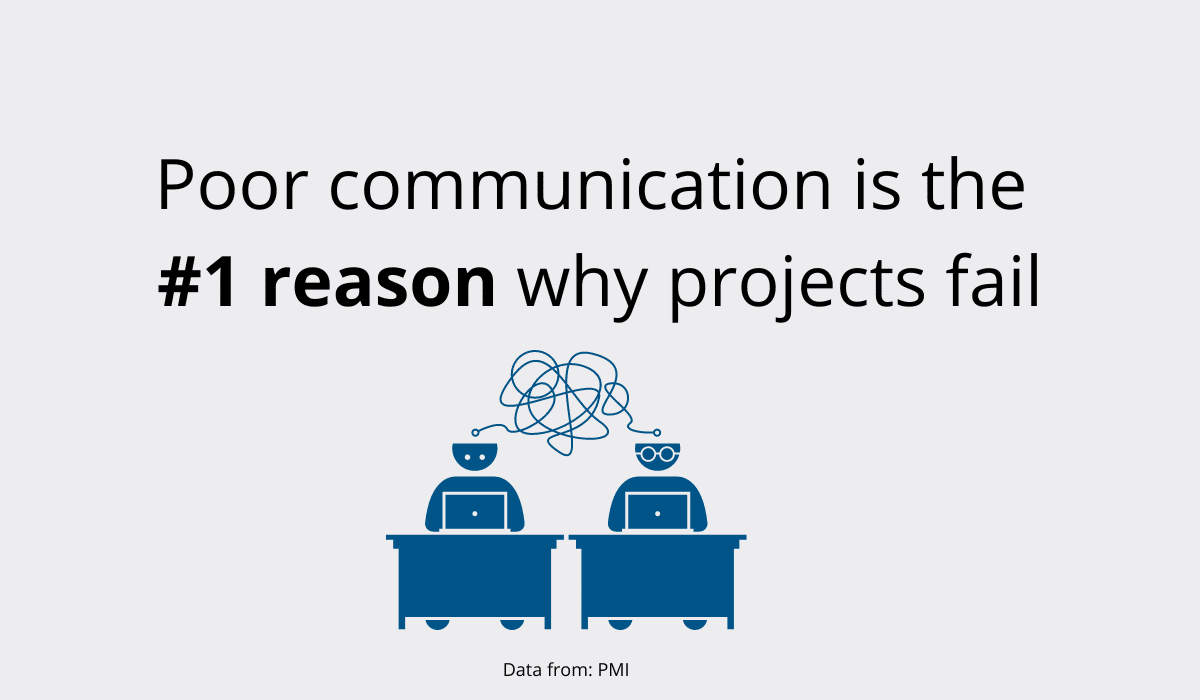
Therefore, you should teach your employees how to communicate better to prevent projects from failing.
The first step in the process is to assign a designated liaison to each team.
The person they talk to needs to know how to listen and show understanding when workers come to them with a problem.
They should never be afraid to ask questions or deliver bad news.
Next, the information conveyed needs to be clear and precise.
Very specific terms should be avoided because they increase the chances of misunderstanding as not everyone might be familiar with them.
Saying what you mean directly and without hesitation is the best way to ensure everyone is on the same page, and don’t be afraid to repeat it if you think it’s needed.
Conclusion
Having soft skills in an industry such as construction is just as crucial as having hard skills.
Workers who can communicate well, manage their time effectively, and are skilled at solving problems in addition to possessing technical knowledge adding value to your company.
Teaching these and a few other soft skills we’ve listed to your employees will result in trustworthy employees who contribute to the team and help your company become more profitable.





